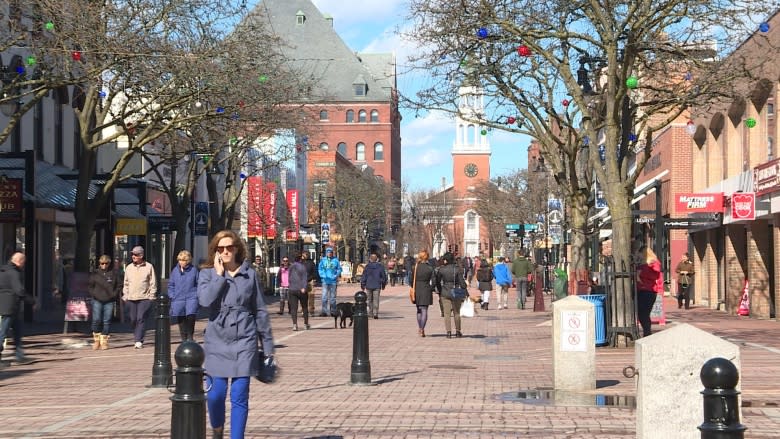Vermont businesses watch anxiously as Canadians turned away at U.S. border
For years, Mark Bouchett has depended on Canadian visitors to keep his business afloat.
The owner of Homeport, a sprawling, three-floor home furniture store on historic Church Street in Burlington, Vt., Bouchett has been anxiously following recent reports of Canadian passport holders turned away at the U.S. border.
"When the economy makes the dollar favourable, we see Canadians come down here all the time, and they have a good time, and they're spending their money," he said.
"When things change, it hurts our business."
Bouchett, whose family once owned two stores in Montreal, has discussed the recent border cases with other store owners and managers on Church Street, and many share his point of view.
"We love our Canadian neighbours, you know."
Since the beginning of the year, a number of Canadian citizens from the Montreal area have been blocked from entering the U.S.
They include a Muslim woman from Brossard who was headed to Burlington to buy a toy for her son, a student athlete from Sherbrooke, also a Muslim, who'd been set to compete in a track and field meet in Boston and a Montreal woman of South Asian parentage who had planned a spa day in Stowe.
Retail association 'watching it closely'
While there's no evidence of an overall increase in cases of Canadians being turned away at the border, stories like those have left Vermont merchants with a few different concerns.
"We do have some severe concerns about anyone being turned away for their race, religion, etc.," said Erin Sigrist, president of the Vermont Retail and Grocers Association.
"We're watching it closely as an association, but also for our members who are most likely impacted the most."
Ensuring the safety of U.S. citizens is important, she said, but shouldn't come at the cost of prejudicial policies.
"Unfortunately, my gut feeling tells me that we haven't seen the last of it," she said.
Bouchett adds that when Canadians are turned away at the Quebec-U.S. border, it sends the wrong message about where Vermonters stand politically.
"We are a much more progressive sort of enclave," Bouchett said. "Burlington, especially, is a very progressive city and very liberal and open-minded."
Representatives of Vermont's state government are also worried.
"We use that border no different than we use a municipal border here in Vermont. And we want to keep it that way, while balancing security," said Ted Brady, deputy secretary of the Vermont Agency of Commerce and Community Development.
"We've balanced security, we've balanced economics, and we've balanced family ties for centuries, and current events aren't going to change that."
Tourism generates roughly $2.4 billion U.S. a year for Vermont's economy, he said, and the state needs to protect its interests.
"Whether it be the passport initiative from a few years ago, or current events, we've managed to get through these blips before, and we're going to do it this time without a problem," he vowed.
"The Vermont state government, the Quebec provincial government stay in contact with our federal partners all the time, to make sure that the centuries-old relationship doesn't fray under any circumstance."
In the wake of the media reports about problems at the border, many Canadians have taken to social media, often stating that they plan to abstain from visiting the U.S. until further notice.
But Brady, whose agency is planning to have a phone conversation Friday with Manpreet Kooner, the Montreal woman who was planning a trip to the spa, said that anyone who is refraining from visiting Vermont as a form of protest should reassess.
"If you're going to make a decision to take a principled stand because of something that's happening in culture, realize that Vermont is the counterculture of what you're seeing at the national level," he said.




